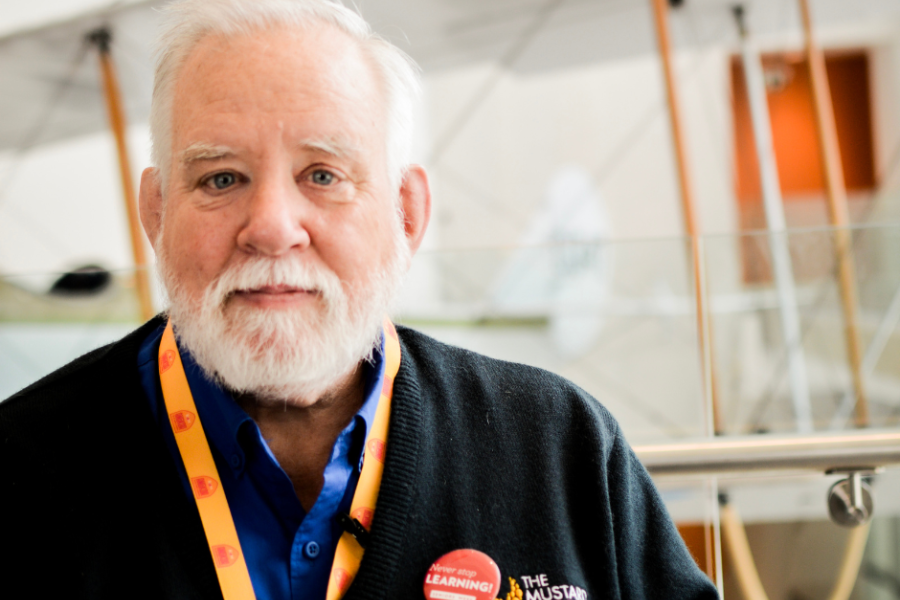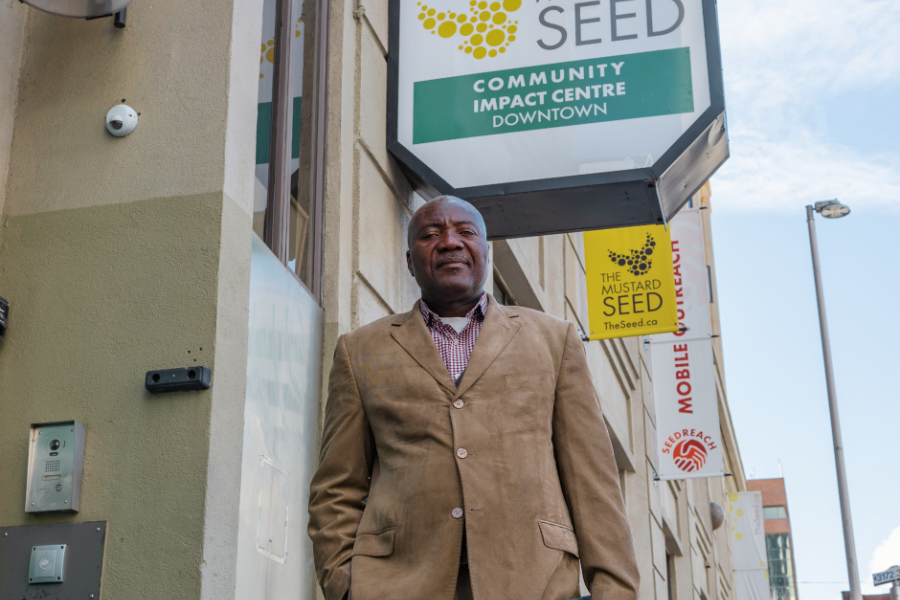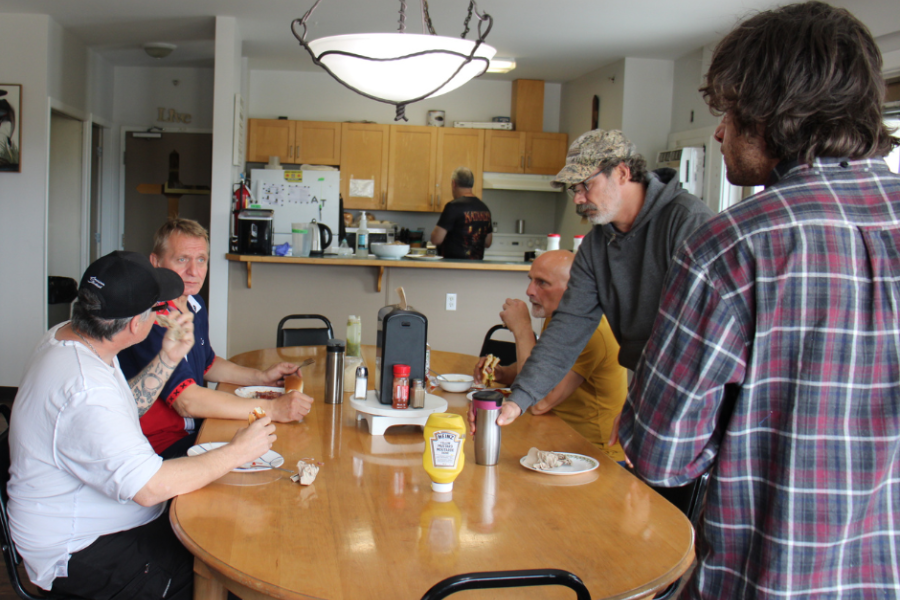Some people assume that men and women experiencing poverty and homelessness are lazy and do not want to work. However, research shows this is not true. The majority have jobs and would actually like to work to support themselves.
Jeremiah Smith, Employment Manager at The Mustard Seed, says, “Clients who we work with are willing to put in great effort to turn their lives around and give themselves a new start, and sustainable employment plays a vital part in successfully giving people this opportunity.”
Nearly 40% of the people who come to our shelter have jobs but cannot afford a place to live.
There is an intricate web of barriers that limits their chances of getting and maintaining employment. According to an article on Homeless Hub, some of these barriers are low education attainment, physical disability, criminal record, lack of vocational training, mental health and substance use, limited access to transportation and lack of computer access.
At the Mustard Seed, one of our values is holistic innovation. Ending homelessness for the people we serve goes beyond simply meeting their basic needs. Helping them find sustainable employment is one of the major steps towards supporting their independence and integration into the broader community.
On monthly basis, our employment team helps more than 150 clients of the employment program as well as drop-ins with resume writing, interviewing skills and job searches.
“We are frequently working with a population that has been out of the workforce for an extended period of time. This is due to many factors: relocation from another city, injury, dealing with addiction and recovery, or personal setbacks,” says Jeremiah.
A common issue we see with many of the people we serve as they seek employment or re-enter the workforce is related to self-confidence. Because they have been living a life of constant uncertainty, they may question their ability to maintain employment in the long run. Clients who come to The Mustard Seed for help often fear their employers or co-workers reaction if they were to find out that they live in a shelter.
Building and enhancing people’s confidence involves providing them with work-related tools and clothing; sometimes even providing funding for job-specific training to maximize their chances of retaining employment.
“This is where we step in as coaches and work through these issues with our clients. Often time the real work for us begins after someone receives a job. We work with them and teach them how to maintain a job, how to adapt to work-place culture and how to budget their money. These are all things that we do in order to keep clients employed and help boost their confidence,” Jeremiah says.
To ensure that clients receive the support they need as they work to obtain meaningful and sustainable employment, the employment team closely monitors their progress throughout the program and provides them with referrals to partner agencies when needed.
“Finding and building relationships with employers who want to work with our clients is something that we are striving to develop, especially as Alberta faces difficult economic times. Helping employers see the real benefits of working with an employment program such as ours, and connecting employees to jobs that they can see themselves in long-term, is what makes these partnerships successful.”



